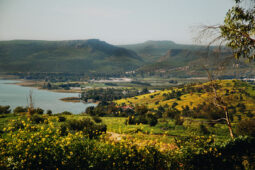The Path to Sunday – Mark Hulme vision.org
In Christian tradition, the shift from Sabbath observance on Saturday to worship on Sunday has deep historical roots, shaped by events and decisions of early Christian councils. The 4th-century Synod of Laodicea, especially Canon 29, declared that Christians should work on the Sabbath and honor Sunday as the Lord’s Day. Those holding onto the seventh-day Sabbath risked exclusion from the Christian community.
The Council of Nicea in 325 AD further contributed to this transition. It separated Easter from the Jewish Passover, fixing it on a consistent Sunday, reinforcing the association of Sunday with Jesus’s resurrection.
The Decree of Milan in 313 AD, issued by Constantine I and Licinius, marked a pivotal moment, decriminalizing Christian practices and promoting Sunday as a day of worship.
While references to early Christian figures like Ignatius of Antioch and the Letter of Barnabas support Sunday worship, concerns about the authenticity and reliability of these sources have been raised. Some argue they might be later additions or forgeries.
The Didache, a document from the mid-first to early second century, is occasionally cited to endorse Sunday worship, but the translation of its relevant passage is disputed, providing uncertain proof of early Sunday adoption.
Examining biblical sources reveals no explicit instruction to change the Sabbath to Sunday. Passages mentioning gatherings on the first day of the week, like Acts 20:7, focus on specific events such as breaking bread rather than establishing Sunday as a new Sabbath. Revelation 1:10, where John mentions the “Lord’s day,” is open to interpretation, with some suggesting it refers to the eschatological “day of the Lord.”
The shift from Sabbath observance to Sunday worship evolved gradually over centuries, influenced by theological, ecclesiastical, and cultural factors. Early councils’ decisions, the influence of Roman emperors, and diverse interpretations of biblical passages collectively shaped the Christian tradition of Sunday worship.
Report Story




